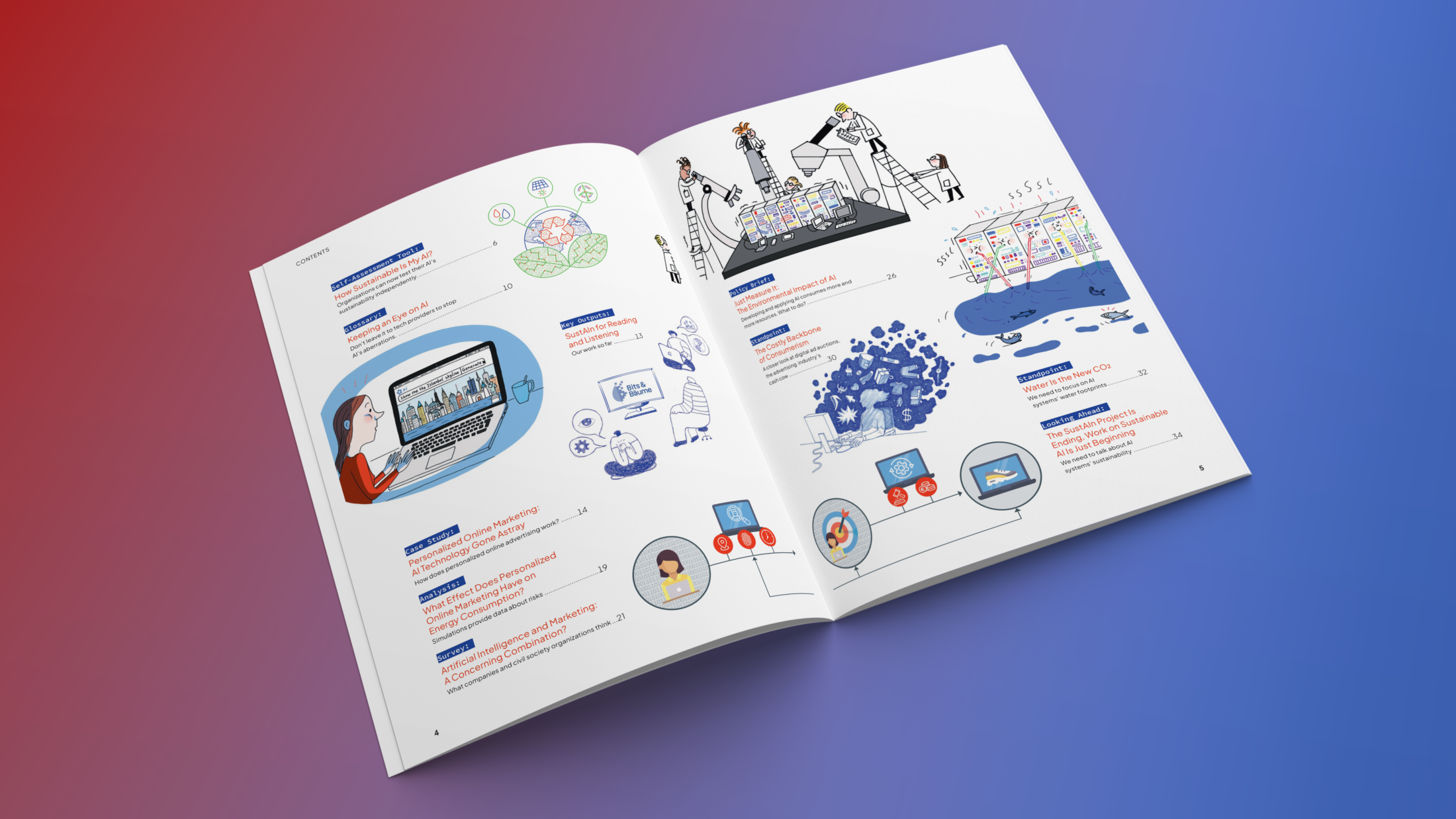AI and Sustainability
SustAIn Magazine #3 – A Different Take on AI: We Decide What AI Has To Do for Us
The third and final issue of the SustAIn magazine deals with the question of who could take responsibility for steering AI development in the right direction.

When flyers and advertising brochures pile up in the garbage, it is clear to everyone this is not good for the environment. But what effect do personalized ads on the internet have on the planet? With every visit to a website, hundreds of cookies are planted to feed an invisible yet extremely energy-intensive advertising infrastructure with personalized user data.
Artificial Intelligence devours lots of resources and frequently has deleterious consequences for our society and the environment. The sustainable and sensible use of AI is everyone’s responsibility, and we should decide together where to deploy AI – and where not.
This magazine is an invitation to think more about what concrete steps could be taken to better regulate the development and implementation of AI technologies – through greater transparency regarding their consumption of energy and water, through prohibitions of harmful uses of AI and stronger incentives to improve efficiency. You can read about these different approaches in detail in the case studies, surveys, policy briefs and standpoints in this issue. Here are some examples of the topics that await you:

How Sustainable Is My AI?
As part of the SustAIn project, we have compiled comprehensive indicators that can be used to assess the social, environmental and economic sustainability of AI systems. Based on those, our Self-Assessment Tool enables organizations to test the sustainability of their AI systems and obtain concrete recommendations for action. (page 6)
The Environmental Impact of AI: Just Measure It
Access to reliable facts and figures is essential for researching the sustainability of AI systems. However, this information is often withheld by developers and operators. Our policy brief proposes measures to ensure greater transparency through the European Union's AI Act. (page 26)


Water Is the New CO₂
While Artificial Intelligence has become a real game changer in scientific research on the climate crisis, its own environmental impact is still understudied. This article addresses the high water footprint of AI systems that rely on fresh water for power generation and server cooling. (page 32)
„SustAIn“ is a joint project by AlgorithmWatch, the Institute for Ecological Economy Research (IÖW), and the Distributed Artificial Intelligence Laboratory at the Technical University of Berlin. It is supported by the Federal Ministry for the Environment, Nature Conservation, Nuclear Safety and Consumer Protection (BMUV) based on a decision of the German Bundestag.
Read more on our policy & advocacy work on ADM and sustainability.

